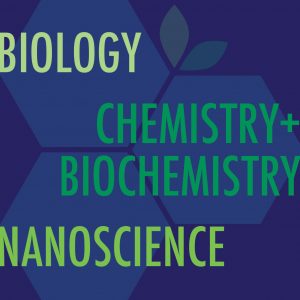August 11, 2020
 Dr. Zhenquan Jia (Biology) and Dr. Norman Chiu (Chemistry and Biochemistry) received new funding from the NIH National Heart, Lung, and Blood Institute for the project “Novel carbon nanodots for modulation of OxLDL mediated inflammation and inhibition of atherosclerosis.” Dr. Jianjun Wei (Nanoscience) is co-principal investigator on the project.
Dr. Zhenquan Jia (Biology) and Dr. Norman Chiu (Chemistry and Biochemistry) received new funding from the NIH National Heart, Lung, and Blood Institute for the project “Novel carbon nanodots for modulation of OxLDL mediated inflammation and inhibition of atherosclerosis.” Dr. Jianjun Wei (Nanoscience) is co-principal investigator on the project.
Vascular inflammation and its subsequent endothelial dysfunction play an important role in the development and progression of atherosclerotic vascular disease. As a known biomarker of inflammation, oxidized low-density lipoprotein (OxLDL) induces inflammatory gene expression and monocyte extravasation that leads to atherosclerotic development. Nanomaterials are an important to the development of nanotechnology. Nanotechnology includes the fabrication, characterization, and applications of new nanomaterials. Carbon nanodots (C-dots) are fascinating newcomers with sizes below 10 nm and have emerged in the past decade to the world of nanoparticles.
Due to their low toxicity, various types of surface modification, green synthesis methods, unique luminescence properties and good biocompatibility. C-dots have attracted extensive attention in the field. The results of the researchers’ cell viability studies have showed that C-dots have low cytotoxicity, which complied with previous studies.
The specific aims of this NIH proposal are: 1a) to determine whether C-dots inhibit the expression of OxLDL-induced adhesion molecule and vascular inflammatory markers; 1b) to investigate whether the NF-?B signaling in endothelial cells is involved in the anti-inflammatory mechanism(s) of C-dots; and 2) to carry out a bio-distribution and safety studies of C-dots in C57BL/6 mice, and the protective effects of C-dots on vascular oxidative stress, inflammation, and atherosclerosis in low–density lipoprotein receptor (LDLr-/-) knockout mice.
The proposed studies will also provide valuable training opportunities for undergraduate students interested in basic science research. Fulfillment of this research project is expected to provide new information on the action of novel carbon nanodots to modulate OxLDL mediated inflammation and atherosclerosis.